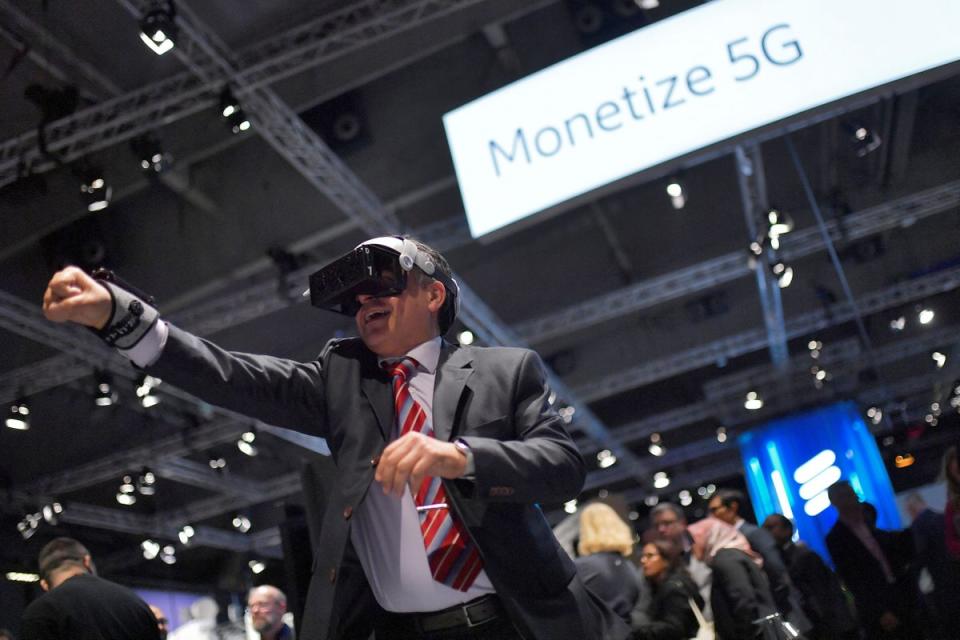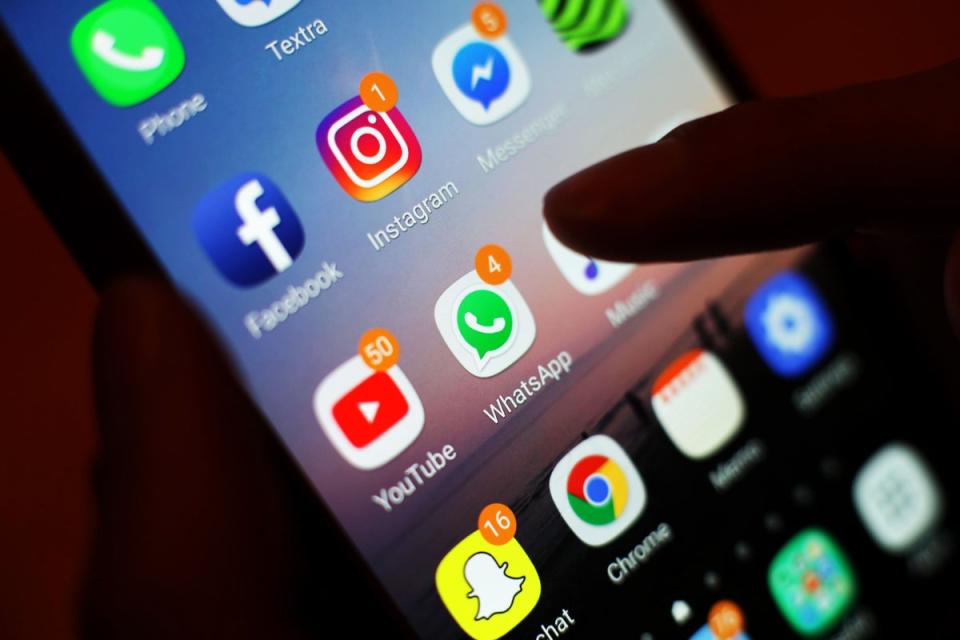Tech giants should help pay for 5G, say Europe’s mobile operators

Europe’s telecoms providers have released a proposal today calling for tech giants Meta, Google, Amazon, Microsoft, and Apple to be made to pay their “fair share” towards 5G and super-fast fibre broadband internet services across the continent.
More than 160 European mobile operators and telcos, including Orange, Deutsche Telekom, and Vodafone, are warning that they could have to raise internet prices for consumers if tech giants don’t help foot the bill.
If content providers make up at least 5 per cent of internet traffic, they need to pay network fees, the telcos say in the proposal. Microsoft, Amazon, Meta, Google, Apple and Netflix contribute more than 50 per cent of all internet traffic.
“The next generation of tech — everything from connected cars, to home automation, to virtual reality and the metaverse — will rely on high-speed mobile networks,” Michael Witts, director of communication for GSMA, which represents the mobile industry, tells the Standard.
“But that costs money and it’s only fair that the companies that benefit most, from the access to consumers that we give them, help pay the cost.”
Would telcos block Facebook and Google, when their customers are paying good money to access that content?
Omdia telecoms analyst Brian Washburn
The GSMA says €174bn (£151.1bn) will need to be spent on European networks by 2030 to help them keep up with the rest of the world. In 2021, total annual investment by European telecom companies amounted to €56.3bn.
Meta, the owner of Facebook, and Google, disagree. They say telcos shouldn’t be allowed to charge both consumers and content providers, because it goes against the whole point of the internet as an open place where people can freely send and receive information.
“Allowing selected telecom operators to charge twice for the same infrastructure... will harm net neutrality, the structure of the open internet, as well as consumers without any guarantee of more investment in networks,” Meta’s VP for public policy Markus Reinisch wrote in a blog post on Wednesday.
Independent technology analyst Ian Grant says the row is going to impact us badly: “It's terrible for consumers because the big tech guys are going to do one of two things: they will build their own networks, or they're going to raise the prices for advertising and search, which means you will be paying more to buy goods online.”
Will we have to pay more for internet in the UK?

Right now, we don’t know. While this is a European issue, UK telecoms industry insiders have told the Standard that they are watching the situation closely.
Last year, regulator Ofcom considered whether UK telecoms companies should be allowed to charge content providers for carrying their internet traffic.
An Ofcom spokesman told The Standard: “We have not yet seen sufficient evidence that this is needed. However, we did propose changes to our guidance that we believe would enable telecoms providers to innovate and manage their networks more efficiently.”
The dream of 5G is that one day people will be able to walk around playing graphic-intensive virtual-reality video games on their mobile phones and that there will be artificially-intelligent self-driving cars that constantly connect to the internet to keep people safe.
However, this requires much more powerful and reliable mobile internet and fibre-optic broadband services than we have today.
Vodafone, one of the UK and Europe’s largest mobile operators, told the Standard that Europe “urgently” needs a connectivity update. And BT’s chief technology officer Howard Watson told CNBC in March that it was considering charging network fees.

“Companies extracting the most value from telco investment in network infrastructure, such as large digital content generators creating the most traffic, should make a fair and proportionate contribution to the costs of developing telecoms networks,” said a Vodafone spokesman.
“We need faster, wider rollouts of 5G and fibre networks — requiring billions of euros in investment — to ensure consumers and businesses can continue benefiting from the latest digital services.”
Rolling out 4G and 5G has cost operators billions of pounds, but mobile networks are already becoming congested and 5G speeds are going down, the GSMA has found, due to an “exponential growth” in people using them to stream high-definition videos and for gaming.
Mobile operators are expected to ensure their networks are always able to handle internet traffic, The Standard understands, even when there are sudden spikes in network traffic, such as a large number of people streaming a live sporting event to their phones.
This means building an even larger network with much more capacity. It’s like planning a party, but you don’t know how many people are going to show up — you just have to guess.
Are tech giants likely to pay?

Europe’s telcos need to get money from somewhere, says Brian Washburn, a telecoms analyst with research firm Omdia, but he doesn’t think they have much leverage against the tech giants.
“Would telcos block Facebook and Google, when their customers are paying good money to access that content?” asks Brian Washburn, a telecoms analyst with research firm Omdia.
“It's largely wishful thinking on the part of the operators.”
In fact, Mr Grant says analysts who research network capacity found European telcos have more than enough bandwidth to run 5G networks. He thinks the telcos are overstating the problem and their finances.
Mr Grant believes mobile operators just really want a slice of the huge amount of money that the tech giants get from providing content services.
He thinks the row might also have something to do with the prices telcos charge to connect the tech giants’ data centres to their networks, which has led to Microsoft and Google building their own fibre networks.
“I’m completely unsympathetic towards the telcos as they have abused their monopolies over the last 40 years and exploited the competition,” says Mr Grant.
“And I’m unsympathetic towards big tech as they have exploited the tech regime mercilessly [to pay very little tax], and this is one reason why we don't have Europe’s own version of Google and Amazon.”
The solution, according to Mr Grant, would be for the EU to tax the tech giants on their actual sales. Another idea is for mobile networks to offer new technologies like edge services — needed for autonomous cars — at a premium price, says Omdia's Mr Washburn.
“One can always ask,” he says. “The answer might still be no, but you're always free to ask for money.”

 Yahoo Sports
Yahoo Sports 